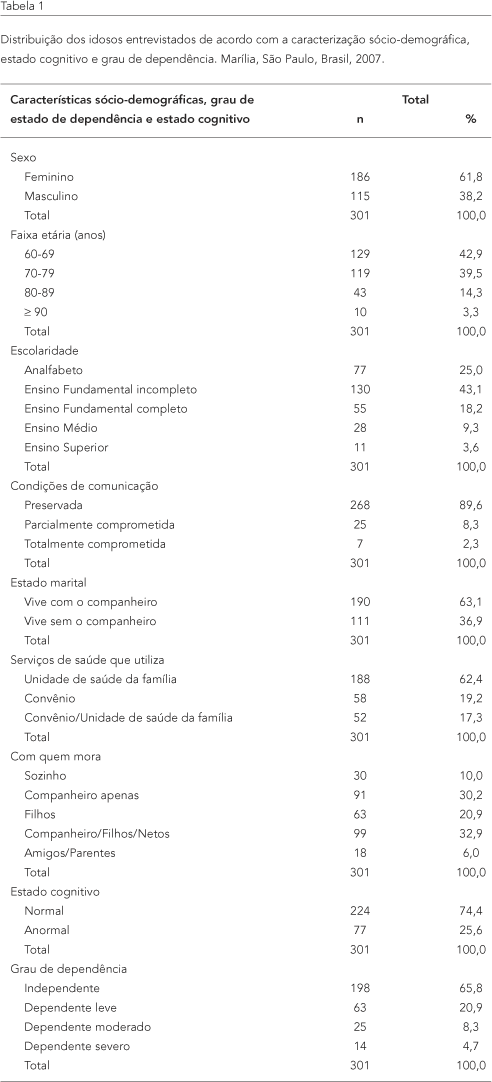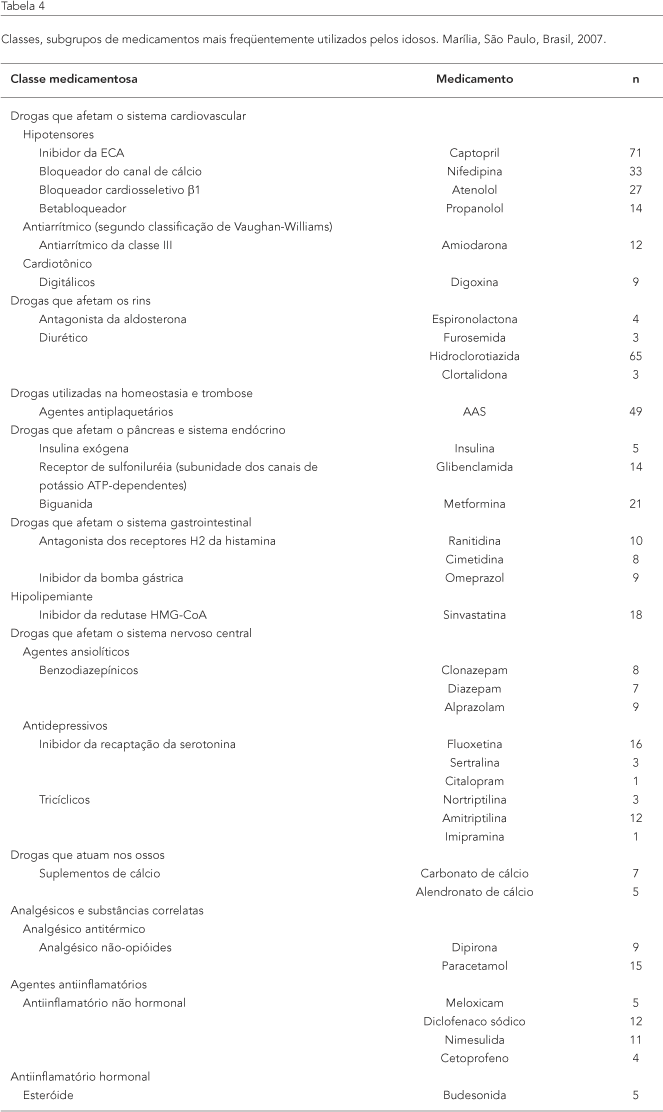The use of multiple medicines is frequent among the elderly. Although such practice is usually necessary, it predisposes to risks of adverse events and drug interaction. The present study was intended to verify the characteristics of medication among the elderly in relation to socio-demographic profile, the most commonly used drug classes, and treatment adherence. This was a descriptive study that included 301 elderly in the coverage area of a Family Health Program, using a previously structure home interview. The sample was predominantly female, with a high illiteracy rate and alterations in cognitive status and various forms of dependency. The subjects showed an average of 2.5 diagnoses and used 2.9 drugs per individual. Some of the drugs are classified as high-risk for the age bracket. Treatment adherence data showed dependence on others for administration, self-medication, forgetfulness in relation to medication, and insufficient knowledge of the drugs taken. Systematic follow-up is needed for elderly persons using multiple medicines, in addition to encouragement for non-pharmaceutical measures and an emphasis on educational measures for lifestyle change, backed by a multidisciplinary team.
Drug Utilization; Aged; Family Health Program





